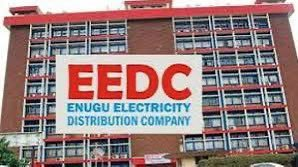EEDC's Operations In The South East: Addressing Allegations and Providing Deeper Insight In response to the allegations that recently b...
EEDC's Operations In The South East: Addressing Allegations and Providing Deeper Insight
In response to the allegations that recently began to circulate on social media against the Enugu Electricity Distribution Company PLC(EEDC), the Company have opted to dismiss them as "false and unfounded informations", attributing them to a smear campaign against the organization. However, such a dismissal overlooks the validity of concerns voiced by customers and stakeholders regarding the company's performance and conduct. So, this outright neglect is the purpose of this article, to clarify certain points that may be unclear to the wider audience.
Clarifying EEDC's Role in the Electricity Value Chain:
While EEDC emphasizes its status as a distribution company, it neglects to delve into the complexities of its role within the broader electricity value chain. Though it is true that EEDC does not generate or transmit electricity, the fact that the company is the one relating directly with the electricity consumers and bears responsibility for ensuring effective distribution and service provision to these customers, cannot be over emphasised. Omitting this crucial aspect detracts from a comprehensive understanding of the challenges facing the electricity sector in Nigeria. This is therefore why the company should urgently consider disconnecting from the nation transmitting grid which they improperly accuse for their failure.
If EEDC wants to be sincere to themselves and customers, then the company must rise to accept the glaring fact, which is that they have all it takes to generate any number of electricity wattage they require to serve their wide consumers in the Eastern Region.
Analyzing Metering and Billing Challenges:
EEDC's assertion of compliance with regulatory standards in metering and billing practices warrants scrutiny in light of widespread customer complaints and allegations of irregularities. Public service ought to measure to the satisfaction of those being served. In a case where this compliance being asserted by EEDC have totally proven dissatisfactory to those being served, it is crucial for it to get trashed adequately.
EEDC have failed to implement proper funding and metering initiatives. And, persistent issues with billing accuracy and metering discrepancies are questions pointing to the inefficacy of their measures. Additionally, concerns have been raised regarding the transparency and fairness of billing practices, with the general public alleging overbilling and arbitrary charges.
Assessing the Impact of Energy Theft and Vandalism:
In the response of EEDC, the company highlights the detrimental effects of energy theft and vandalism on service delivery. But this is a downplay on its own responsibility in mitigating these issues. Instances of equipment theft, vandalism, and illegal connections have persisted, despite the EEDC's claims to have put in efforts to combat them. But also, accusations have surfaced regarding the complicity of some EEDC employees in facilitating energy theft schemes. This as well raises concerns about internal oversight and accountability.
Scrutinizing EEDC's Partnerships and Agreements:
EEDC's strategic partnerships and agreements, such as the Memorandum of Understanding (MOU) with Anambra State merits closer examination to assess their impact on service delivery and accountability. Questions have been raised about the transparency and equity of these agreements, with some alleging preferential treatment and lack of consultation with affected stakeholders. Furthermore, concerns persist regarding the allocation of resources and benefits derived from such partnerships, necessitating greater transparency and public scrutiny.
Challenging False Claims and Denials:
EEDC's categorical denials of allegations regarding financial transactions and power restrictions lack credibility in the absence of substantive evidence to refute them. Rather than addressing these concerns with transparency and accountability, EEDC resorts to blanket denials and dismissals, further eroding public trust and confidence in the company's integrity.
Family Writers Press International






No comments
Note: only a member of this blog may post a comment.